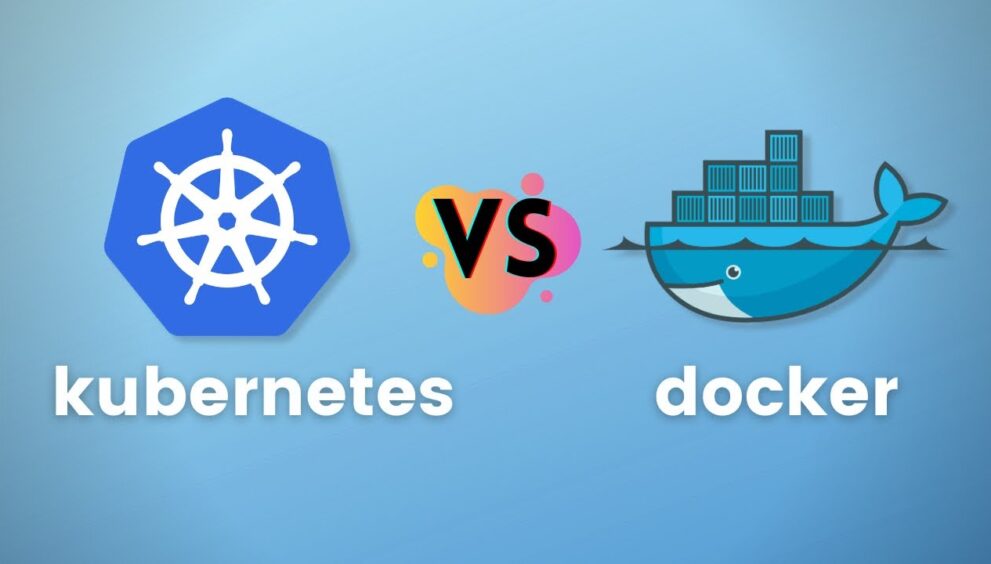Kubernetes vs Docker: Which One is Right for Your Cloud Strategy?

In today’s rapidly evolving cloud landscape, containerization has become a game-changer for businesses looking to deploy applications efficiently. Among the top solutions in this space, Kubernetes vs Docker often emerge as the key contenders. While both are essential tools for containerized environments, their roles, functionalities, and use cases differ significantly. The question is: which one is right for your cloud strategy? Let’s explore the differences and help you make an informed decision.
Understanding Docker and Kubernetes
Before diving into the comparison, let’s briefly understand what Docker and Kubernetes are and their primary functions.
What is Docker?
Docker is a containerization platform that allows developers to package applications along with their dependencies into lightweight, portable containers. These containers can run consistently across different environments, eliminating the common “it works on my machine” problem. Docker simplifies the development, deployment, and management of applications by providing:
- Containerized environments for applications
- A lightweight and fast execution platform
- Easy scalability and portability
What is Kubernetes?
Kubernetes, often referred to as K8s, is an open-source container orchestration platform. It automates the deployment, scaling, and management of containerized applications. Originally developed by Google, Kubernetes has become the industry standard for container orchestration due to its advanced capabilities, including:
- Automated scaling and load balancing
- Self-healing mechanisms
- Rolling updates and rollbacks
Kubernetes vs Docker: Key Differences
Now that we have a basic understanding of both technologies, let’s compare Kubernetes vs Docker based on different parameters.
1. Purpose and Functionality
Docker is primarily a container runtime, meaning it helps create, manage, and run containers. On the other hand, Kubernetes is an orchestration tool designed to manage a large number of containers efficiently.
- Docker: Focuses on building and running individual containers.
- Kubernetes: Manages and orchestrates multiple containers across clusters.
2. Scalability
When it comes to scaling applications, Kubernetes offers superior automation and control. Docker alone does not provide built-in orchestration capabilities, but it can work with Docker Swarm, its native orchestration tool.
- Kubernetes: Provides automated scaling and self-healing features.
- Docker Swarm: Suitable for simpler workloads but lacks advanced orchestration features.
3. Networking and Load Balancing
Kubernetes provides a robust networking model that enables seamless communication between containers and services. It comes with built-in service discovery and load balancing features. Docker, by default, does not have an advanced networking solution like Kubernetes.
- Kubernetes: Has a powerful internal networking mechanism.
- Docker: Requires third-party tools for advanced networking.
4. Ease of Deployment
Docker is easier to get started with, making it ideal for developers who need a simple containerization solution. Kubernetes, while powerful, has a steeper learning curve and requires more setup effort.
- Docker: Beginner-friendly and quick to deploy.
- Kubernetes: More complex but offers greater control over deployments.
5. Resource Management
Kubernetes excels at resource management by automatically distributing workloads across nodes based on available resources. Docker, on its own, does not provide an advanced scheduling system.
- Kubernetes: Dynamically allocates resources for optimal performance.
- Docker: Requires manual intervention for resource allocation.
Which One is Right for Your Cloud Strategy?
The choice between Kubernetes vs Docker depends on your business needs, scale, and technical expertise. Here’s a quick guide to help you decide:
Choose Docker if:
- You are working on small to medium-sized applications.
- You need a lightweight and easy-to-use containerization tool.
- You want quick application development and deployment.
Choose Kubernetes if:
- You need to manage large-scale, complex applications.
- You require automated scaling and advanced orchestration features.
- Your business is adopting a microservices architecture.
How Kapstan Can Help
At Kapstan, we specialize in cloud-native solutions, helping businesses adopt the right containerization and orchestration strategy. Whether you’re looking to implement Docker for quick application development or scale with Kubernetes for enterprise-grade applications, our team of experts can guide you every step of the way.
By leveraging the right tools, you can optimize your cloud infrastructure, improve efficiency, and enhance performance. If you’re unsure whether Kubernetes vs Docker is the best fit for your cloud strategy, reach out to Kapstan for expert consultation.
Conclusion
Both Kubernetes vs Docker play crucial roles in modern cloud computing, but they serve different purposes. Docker is excellent for containerization, while Kubernetes is the go-to solution for orchestrating large-scale deployments. Your choice depends on your business needs, technical requirements, and scalability goals. If you need expert guidance, Kapstan is here to help you make the right decision for your cloud strategy.


 English
English 


















































































































































































































































































































 Office Clearance for SMEs: Affordable Solutions Businesses
Office Clearance for SMEs: Affordable Solutions Businesses









































































































































































































































































































































































































































































































































































































































































































































































































































































































































































































































































































































































































































































































































































































































































































































































































































































































































































































































































































































































































































































































































































































































































































